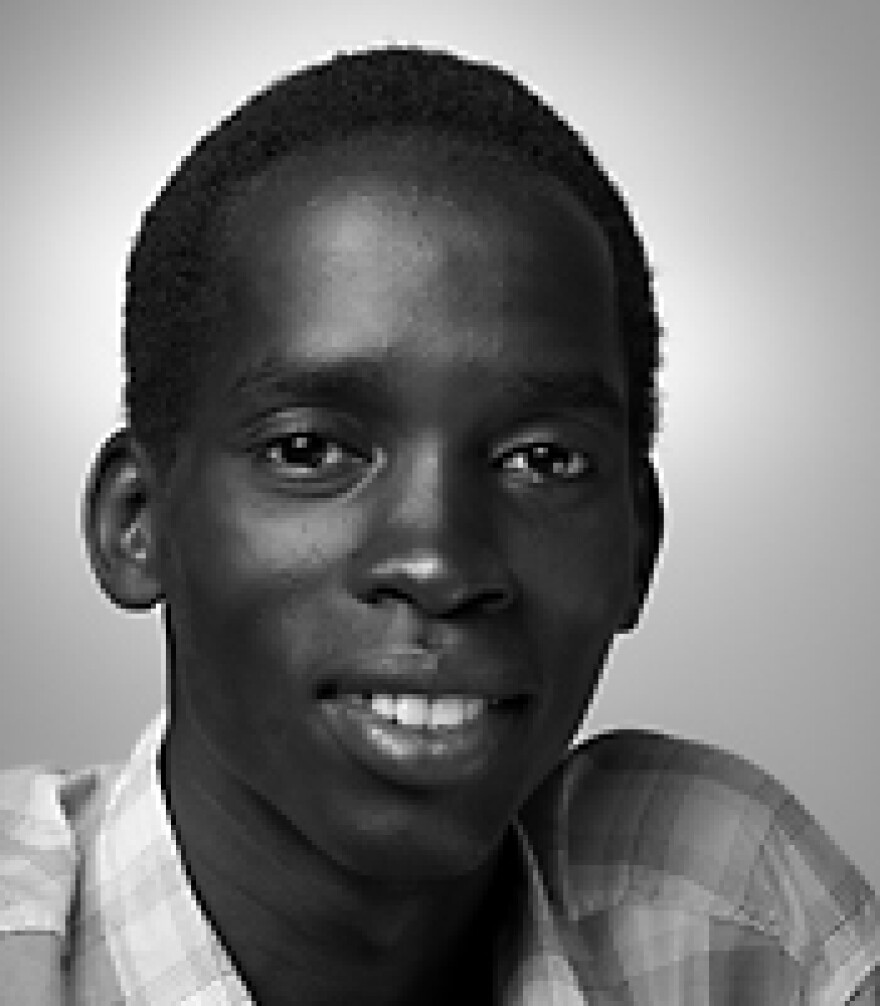When Nyuol Tong was six years old, his family was caught in the crossfire of the Sudanese Civil War. After living in Sudanese refugee camps, and Egypt, Tong made his way to the United States.
When Nyuol reflects on his life in Sudan and Egypt, he talks about the constant shifting he had to do in order to survive.
“In wartime you really learn how to live within borders. That’s something people don’t understand. Borders become your way of survival,” said Nyuol. “Boundaries, you try to understand how to observe him. And that is always a challenge, whether you’re in the swamp, villages, or in the refugee camp. There are always borders.”
BREAKING BOUNDARIES
One of the many boundaries that Nyuol has been driven to break is access to education. He spoke with The State of Things host Frank Stasio about his attempt to attend school in Khartoum, the capital of Northern Sudan. Nyuol had worked odd jobs in the city, in order to be able to afford the uniform required for school attendance. But the first day of school, Nyuol was told he had to leave. He later learned he was denied this education because he was South Sudanese.
After being turned away, Nyuol spent much of his time finding creative ways to become educated. An imam in Sudan helped teach him Arabic.
“Before he became an imam he was a soldier in the first civil war. So he wasn’t really just this religious figure. He was very unhappy with Sudanese politics, and the way the South Sudanese were being treated,” said Nyuol. “And that’s why he was really open to having his son play with me. His son was the only Arab kid that ate at my house. It was only his house I was allowed to sit in the chair. In other Arab houses I would have to sit in the ground, even if they were my friends, and my host would sit in the chair. So this guy was really unhappy with the reality, but he was trying to help me.”
Arabic provided two keys to his liberation: writing and reading. Nyuol Tong eventually took a writing workshop for refugees with Brook Comer, a professor of literature at the American University in Cairo. And with her connections, he was able to fly to United States to continue his education.
LIFE IN THE U.S.
Life changed drastically for Nyuol when he moved to California. The intense shift into privilege was not always easy.
“Stability, and being bestowed upon with resources, can be a form of psychological brutality. How do you really embrace the blessings you are given, what makes you unique to deserve the blessings? You grew up, taking nothing for granted, and now you’re not only given something, you’re given an entire world,” says Nyuol. “Why was it me?...Trying to make myself worthy of the blessings and resources, was a brutality. It makes you question your worth.”
This transformation in lifestyle pushed Nyuol to think deeply about gratitude, and what it means to be thankful, or to be worthy.
“[My situation] is not a reward. It’s something that these people are happy to do for me. I don’t deserve it. And to understand doesn’t mean there’s something lacking in me…it just means that it’s not new that there are lot of things that you have had that you don’t deserve, but you have them anyway…” Nyuol shares.
“I have to be grateful, but not just saying thank you. It means that I have to in some sense have to be obligated to do the same thing to others. Precisely what enabled these people to help me is their having resources. And now I do have resources.”
Today, Nyuol Tong is a senior at Duke University. He recently published his anthology “There is a Country: New Fiction from the New Nation of South Sudan,” and his short story “The Bastard,” in the newest Timothy McSweeney's Quarterly Concern. (McSweeney’s, 2013). Nyuol also received funding from The Davis Projects for Peace Scholarship, to grow variety of drought-tolerant and pest-resistant corn in his home village of Ayeit.


